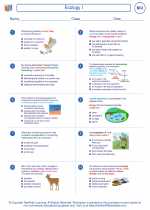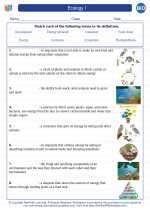Study Guide: Shear Stress in Biology
Definition of Shear Stress
Shear stress is a type of mechanical stress that occurs when forces are applied parallel to a surface, causing deformation by sliding one part of the material parallel to another part. In biological systems, shear stress is particularly important in the context of blood flow in blood vessels and the mechanical response of cells to their environment.
Biological Applications
Shear stress is critical in understanding the function and behavior of biological systems. Some key applications include:
- Blood Flow: Shear stress influences the behavior of blood cells and the endothelial cells lining blood vessels, playing a crucial role in cardiovascular health.
- Cell Mechanics: Cells experience shear stress in various physiological processes, such as during migration and in response to fluid flow.
- Tissue Engineering: Understanding shear stress is important for designing and maintaining engineered tissues, as mechanical forces influence cell behavior and tissue organization.
Measurement and Units
Shear stress is typically measured in units of force per unit area, such as pascals (Pa) or dynes per square centimeter (dyn/cm2). It can be quantified using techniques such as microfluidics, rheology, and computational modeling.
Effects on Biological Systems
Shear stress can have profound effects on biological systems, including:
- Cell Signaling: Shear stress can activate signaling pathways within cells, influencing gene expression and cell behavior.
- Mechanical Adaptation: Cells and tissues can adapt to chronic or cyclic shear stress, leading to changes in their mechanical properties and function.
- Disease Implications: Abnormal shear stress patterns can contribute to the development of vascular diseases and other pathological conditions.
Research and Future Directions
Ongoing research in the field of shear stress in biology continues to uncover new insights into its role in health and disease. Future directions include exploring the interplay between shear stress and other mechanical forces, as well as developing novel approaches to manipulate and harness shear stress for therapeutic purposes.
[Shear] Related Worksheets and Study Guides:
.◂Biology Worksheets and Study Guides High School. Ecology I

 Worksheet/Answer key
Worksheet/Answer key
 Worksheet/Answer key
Worksheet/Answer key
 Worksheet/Answer key
Worksheet/Answer key
 Vocabulary/Answer key
Vocabulary/Answer key
 Vocabulary/Answer key
Vocabulary/Answer key
